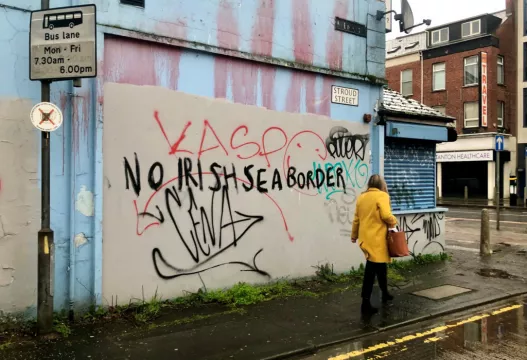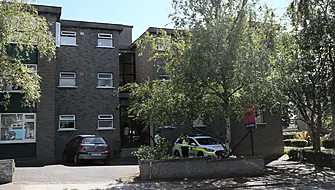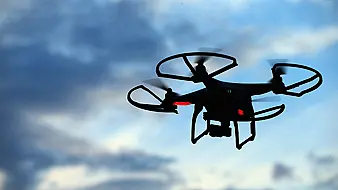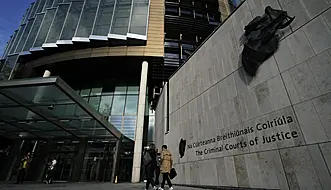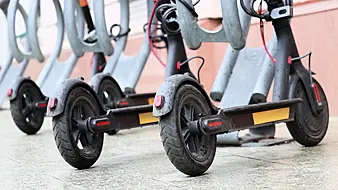Additional reporting by Vivienne Clarke.
The EU and UK are set for crunch talks with Northern Ireland’s leaders over mounting tensions around post-Brexit Irish Sea trading arrangements.
European Commission vice president Maros Sefcovic and UK cabinet office minister Michael Gove will hold a virtual meeting with the North's First Minister Arlene Foster and Deputy First Minister Michelle O’Neill to discuss the ongoing furore over the Northern Ireland protocol.
Physical inspections on goods entering the North from Britain, which are required under the protocol, have been suspended amid threats and intimidation of staff.
Police have insisted there is no evidence that loyalist paramilitaries are involved in the sinister campaign, instead blaming disgruntled individuals and small groups.
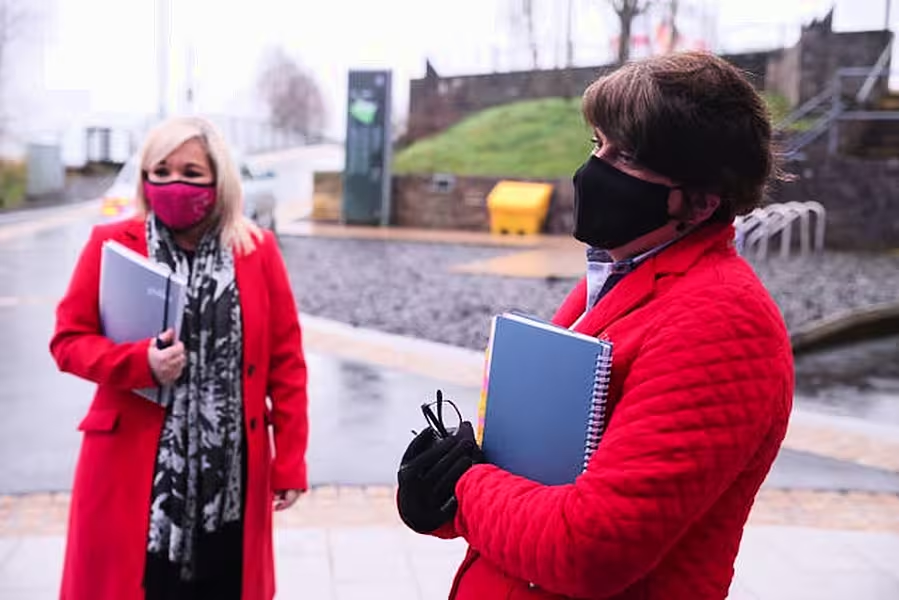
On Tuesday, in another sign of heightened tensions, a large group of masked men were seen walking around an area of east Belfast where the Ulster Volunteer Force (UVF) exerts influence on the community.
Graffiti warning off inspectors has appeared close to ports in recent weeks. Police have also stepped up patrols at the ports following the spate of intimidatory incidents.
Mr Sefcovic and Mr Gove chair the UK/EU joint committee tasked with implementation of the protocol.
The meeting comes after UK prime minister Boris Johnson said “urgent action” is needed to resolve outstanding problems.
The protocol is a mechanism agreed by the EU and UK as part of the withdrawal talks to ensure a free-flowing Border between the North and Republic.
It achieves that by moving regulatory and customs processes to the Irish Sea, focusing on the movement of goods between Britain and Northern Ireland.
The inspections and added bureaucracy are required because, under the protocol, Northern Ireland remains in the EU single market for goods and also applies EU customs rules at its ports.

Unionists and loyalists are deeply unhappy with the new arrangements, which came into force on December 31st, believing the protocol has created a barrier between the region and the rest of the UK, undermining the constitutional integrity of the Union.
On Tuesday, the DUP announced a series of political moves aimed at undermining the protocol.
Its strategy includes opposing any protocol-related legislation at the Stormont Assembly and refusing to participate in any exchanges with the Irish Government related to the operation of the protocol.
Some people are trying to rewrite history here.
Despite the DUP's plans, the Minister for Foreign Affairs Simon Coveney has said the removal of the Northern Ireland protocol is not going to happen.
“Some people are trying to rewrite history here. The protocol is not primarily the problem, it’s the Brexit that the UK insisted on,” he told RTÉ radio’s Morning Ireland.
The EU’s decision last Friday on triggering Article 16 had made the situation “a lot worse” and would not have happened if there had been consultation. “It makes the situation more difficult.”
Mr Coveney said the position of some Northern politicians, refusing to cooperate with the Irish Government regarding the protocol, would cause even more difficulty, but added: “My job is to try to ease the tension.”
The Minister acknowledged there were elements of the protocol that were causing “real problems” and there needed to be some flexibility and to look into ways that were pragmatic.
The protocol was not perfect, but asking to do away with it in its entirety was not practical, he said.
The focus needed to be on calm discussion to make the implementation of the protocol more acceptable, added Mr Coveney.
Threats to workers at ports in Northern Ireland were “totally unacceptable” and had to be condemned, he said
